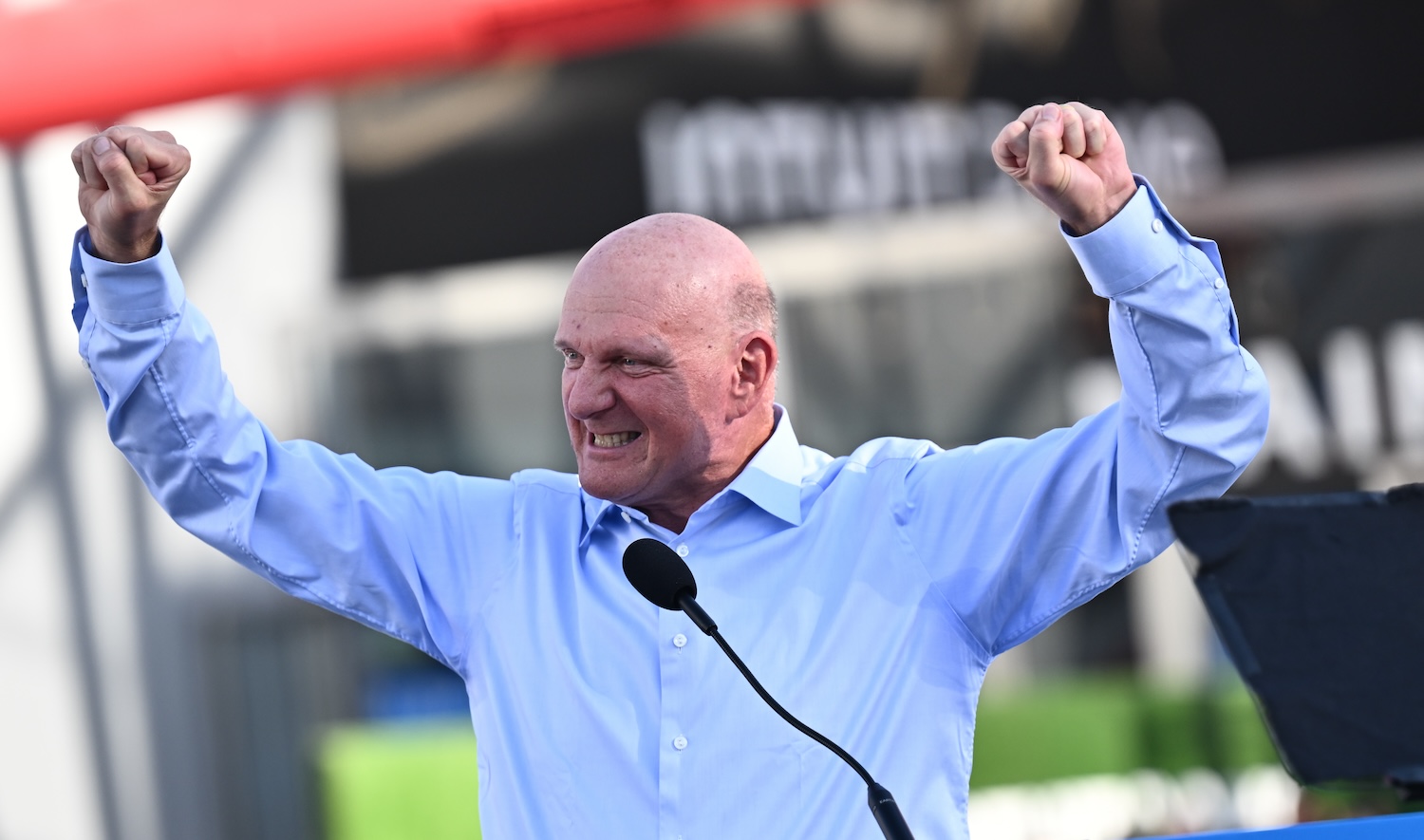For too long, as they suffered under a purple-and-gold yoke, Los Angeles Clippers fans were familiar with a very particular sort of pain: The arena stopped serving alcohol at the end of the third quarter, meaning anyone seeking a premium-style VIP luxury bar experience in the dreary confines of an NBA arena during the fourth quarter was out of luck. The thrill of watching James Harden take his 13th and 14th free throws of the night as the Clips try to overcome a late 11-point deficit just doesn't hit the same without a $22 domestic draft. The experience of recounting said free throws five hours later over a $31 gin and tonic is equally paltry if you can't share it with fellow VIPs in the arena where Harden shot those free throws.
Thankfully, California Governor Gavin Newsom has solved this pressing problem. On Sunday, Newsom signed AB-3206, an extremely specific bill that will allow alcohol sales to continue until 4:00 a.m. in VIP areas of the new Clippers arena in Inglewood until Jan. 1, 2030. California state law otherwise prohibits alcohol sales between 2 a.m. and 6 a.m.; now, thanks to the state legislature, an arena that has yet to host its first NBA game can boast of the first exception. The bill does not name the Clippers arena specifically, though its carve-out in state liquor law applies strictly to vendors operating in a "fully enclosed arena with a seating capacity of at least 18,000 seats located in the City of Inglewood," and only within a "private area in the arena no larger than 2,500 square feet" after events.
The bill was introduced by assembly member Tina McKinnor in February, amended and passed out of committee in April, and approved by the state senate in August by a vote of 21-14. Newsom signed it into law Sunday night. In a statement he acknowledged the risks and committed to getting the California Highway Patrol and local cops to "track DUI incidents in the surrounding communities, and to prepare a report on the impacts of extended alcohol service hours." Meanwhile, Newsom has also been busy pivoting to the right on immigration, signing a new law that will punish protestors, and vetoing bills that would have reined in "AI" and limited the power of private equity in healthcare.
The intimation of a suggestion of the framework for a DUI task force is an oblique way to justify a law that might kill people, and the only real pitch for the new law anyone involved in it has made has been equally oblique: McKinnor made reference to "Inglewood's renaissance" in an August tweet. You can't really make the case that a law whose chief effect will be allowing people to get blasted while pointing to a spot on the court where Norman Powell missed a midrange jumper has any meaningful public benefit. McKinnor also said the bill "is limited in scope, includes numerous safeguards to protect public health and safety, including approval by the Inglewood City Council and will provide another entertainment option to compliment [sic] the over $2 billion of private investment in Inglewood’s [name of Clippers arena]."
The scope of the bill truly is quite small, so what makes the case of AB-3206 interesting is less its text than the circumstances of its passage. The traditional story of arena construction involves a billionaire owner getting the public to pay for a certain amount of their new arena, typically via either the stick of potential relocation or the carrot of urban renewal. The case of the Clippers' arena is different, in that there's scarcely anything public about it.
Team owner Steve Ballmer paid for the new arena himself and made it worth the Inglewood city government's while to let him do whatever he wanted. Many residents have complained about the changes ushered in by the new building—to name three commingled effects: gentrification, displacement, soaring rents—though Ballmer footing the bill meant that they had no input whatsoever. (We should note also that Ballmer's wife Connie Snyder once donated $1 million to Newsom's 2021 recall defense.)
Similarly, as the new booze bill will apply only to people rich enough to spring for a suite (the primary suites on offer are called the Neat Suites, which is truly abominable) or otherwise get into the VIP area, normal people and Clippers fans will only be affected if a drunk rich guy runs them over on the way back from watching the Clips blow a 15-point lead to the Suns in January. It's a glimpse of the fundamentally exclusionary future of big-time professional sports in America.
That it's futuristic doesn't make it cool. The Ballmerite vision of this involves the glitziest and most glamorous Angelenos doing business deals deep into the wee hours—in the VIP suites, to reiterate, at Los Angeles Clippers games—but in actuality, it more likely will mean exhausted bartenders being forced to keep serving besotted, grim-smelling dudes with harrowingly complex Bones Hyland opinions, deep into the bleak morning.






